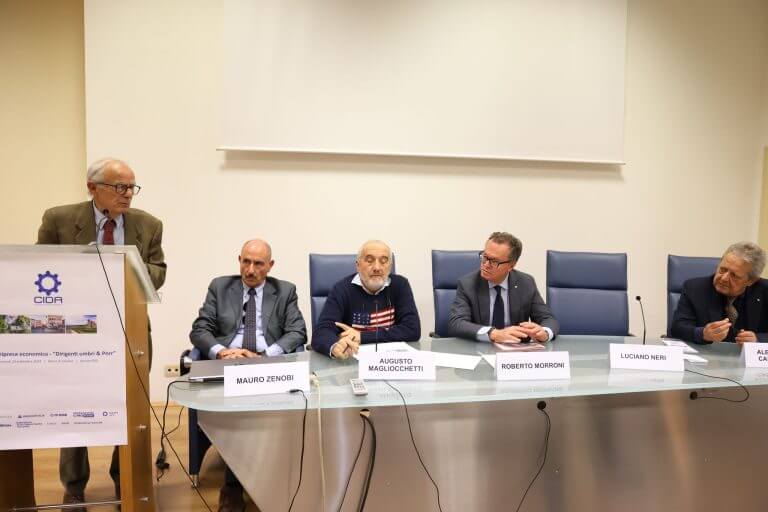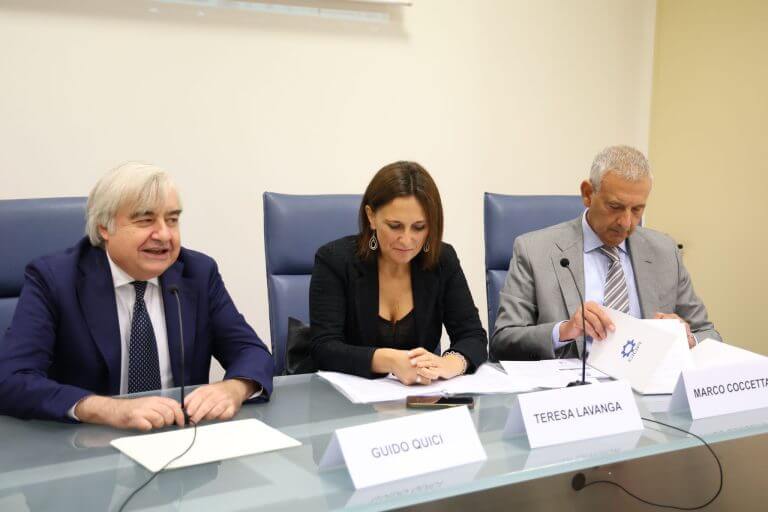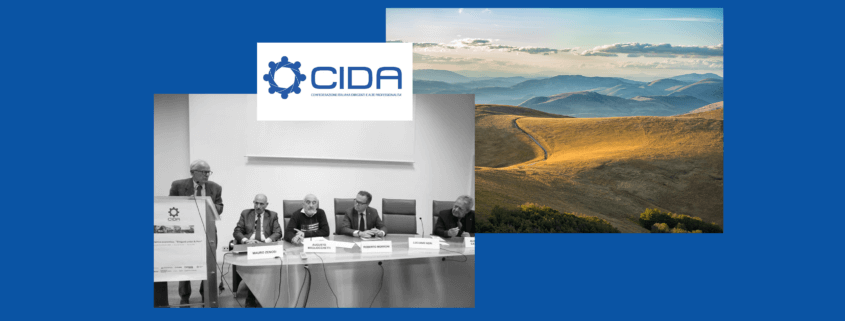A showcase of Umbria’s economic revival
Against the stunning backdrop of Rocca di Casalina in Deruta, CIDA Manager, the Italian confederation representing leaders, executives, and high-level professionals across all production sectors, held a pivotal event titled “CIDA and Economic Recovery. Umbrian Managers & PNRR”.

Italy, Umbria, Parco Nazionale dei Monti Sibillini,
Our Italian colleagues said this gathering was a significant moment for their organisation. CIDA Manager serves as the Italian member organisation of CEC European Managers, reflecting the country’s active role in the broader European network of leadership and management professionals.
The event opened with greetings from Guido Quici, Vice President of CIDA and President of Cimo-Fesmed. This was followed by insightful contributions from Marco Coccetta, CIDA Umbria’s Regional Secretary, and Teresa Lavanga, CIDA’s Director.
Donatella Tesei, President of the Umbria region, highlighted the region’s effective utilization of the Recovery and Resilience Facility (Pnrr) funds.

“Umbria has expertly leveraged Pnrr funds to chart its future. With credible and feasible projects, we have secured about 5 billion euros in Pnrr and EU funds—an enormous amount for our region. This financial support will help shield us from potential economic downturns. After the autonomous provinces of Bolzano and Trento, we are the first region in Italy to achieve such a high level of project implementation, with 71% already under contract. Additionally, through the ‘1000 Experts’ project, we are assisting local authorities to complete numerous projects on time, and the certified results show the excellent work done so far,” she stated.
With credible and feasible projects, we have secured about 5 billion euros in Pnrr and EU funds—an enormous amount for our region.
Donatella Tesei
President of the Umbria region
The meeting continued with thematic roundtables led by various member federations, showcasing the collaborative efforts across sectors.
Cristina Cenci and Francesco Corea of the Cimo-Fesmed Federation, along with regional health officials, discussed the challenges and opportunities of Pnrr’s mission 6, which is focused on healthcare. “It is crucial that we continue developing community health centers and digitalising Italian healthcare services,” they claimed.
The Electronic Health Record (FSE) was highlighted as a crucial tool for patient management and integration between hospitals and community services. It could potentially transform emergency rooms from the sole access point for chronic care to just one component of a more comprehensive system.
Augusto Magliocchetti and Enrico Zenobi from Federmanager Perugia, together with Regional Councilor Roberto Morroni, addressed the region’s renewable energy prospects, focusing on the critical issues of energy autonomy and the role of agrovoltaics. “Agrovoltaics offers promising opportunities, especially for agricultural businesses, and can even be a survival strategy in some cases,” they said.

Teresa Lavagna, CIDA MANAGER’s Director
The conversation then shifted to tourism, a sector crucial to Umbria’s identity, with Ferruccio Fiordispini from CIDA Umbria and Regional Tourism Councilor Paola Agabiti.
The session, titled “Umbria: The Green Heart of Italy?”, questioned how well the region lives up to this celebrated slogan. Making the best use of Pnrr resources to strengthen Umbria’s brand and ensure the region’s natural beauty and cultural heritage are more tangible and accessible to visitors was one of the main focuses of the discussion.
In agriculture, Councilor Roberto Morroni and Roberto Giangrande of Fenda discussed Pnrr measures targeting the modernization of agricultural equipment and oil mills. These initiatives aim to enhance the competitiveness and sustainability of Umbrian agriculture.
They also discussed regional policies promoting business aggregation through supply chain tenders and safeguarding the quality of local products.
Finally, Giuseppe Beato, Silvio Improta from FPCIDA, and Luigi Rossetti, a regional official, explored educational topics. They stressed the need for coordination between higher education institutions and regional vocational training centers to provide integrated training solutions. Discussions also covered the “dimensioning” of educational institutions, ensuring schools are strategically distributed across the region to meet local needs.
This event, beyond its focus on regional recovery, reaffirmed CIDA Manager’s crucial role among Italian leaders and within CEC European Managers, underscoring the country’s commitment to supporting high-level professionals and driving sustainable economic growth through the strategic use of EU resources.

View on the plain of Norcia from the road to Forca Canapine (Perugia, Umbria, Italy), in the park of Monti Sibillini, at summer




